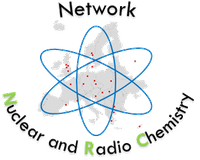Detection of Ionizing Radiation
Abstract:
The first part of the course deals with the definitions, properties, and application of the detectors of ionising radiation (IR). In the second part, a detailed overview of the gas detectors, scintillation detectors, detectors for high energy IR, semiconductor detectors, and integrating solid state detectors is given. The last part of the course reviews the principles of the statistical treatment of data, and limits of detection.
Outline:
- Properties of the detectors of ionising radiation (IR). Detectors definition, functions and properties - counting, measurement of energy.
- Detector properties - measurement of place and time; discrimination; output signals.
- Application of detectors - counting; spektrometry.
- Application of detectors - dosimetry, visualisation; timing measurements.
- Types of detectors. Gas detectors.
- Scintillation detectors.
- Visualisation systems, detectors for high energy IR.
- Semiconductor detectors - Part 1.
- Semiconductor detectors - Part 2.
- Integrating solid state detectors - film detectors; thermoluminiscent detectors; radiophotoluminiscent detectors; detection of neutrons.
- Statistical treatment of data and uncertainties estimation. Description of data; statistic models; error propagation; measurement optimisation.
- Limits of detection and determination. Qualitative analysis, quantitative analysis, gamma-ray spectrometry.
Goals:
The course of the detection of ionizing radiation provides the students with the knowledge of the principles of the function of various types of detectors, and basics of the treatment of measured data and limits following from the statistical character of this data. The students will acquire competence to select the type of detector appropriate for their respective application(s), comprehend the results of the measurement of ionising radiation, and correctly interpret their statistical relevance.
Requirements:
Knowledge of physics on the level of a completed basic university course. Basic knowledge of the structure of atoms and nuclei. Knowledge of the mechanisms of interaction of ionising radiation (IR) with matter and of principles of IR dosimetry.
Key words: Ionising radiation, radiation detection, detectors, spectrometry, data treatment, limits of detection a determination.
References:
- G.F. Knoll: Radiation Detection and Measurement, J. Willey & Sons, New York, 1984.
- W.H. Tait: Radiation Detection, Butterworths, 1980.



 This e-shop runs on e-shop platform by
This e-shop runs on e-shop platform by